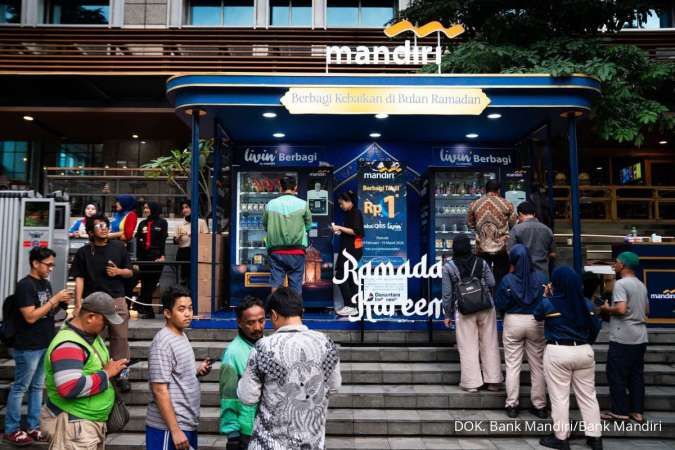JAKARTA. Following president-elect Joko “Jokowi” Widodo, Jakarta Deputy Governor Basuki “Ahok” Tjahaja Purnama has thrown his support behind the effort to maintain direct elections for regional heads amid attempts from political parties affiliated with the Red-and-White Coalition to return the vote to the regional legislative councils.Ahok, a Gerindra Party politician and former Golkar Party member, slammed the coalition’s plan, stating that it would be prone to corruption and would only benefit the council members and a handful of wealthy candidates.“[The plan to return the regional elections back to polling at the regional legislative councils] is ridiculous. Frankly, I think they [the Red-and-White Coalition] have forgotten the essence of reformasi,” Ahok told reporters at City Hall in Central Jakarta on Monday.Ahok said that the purpose of reformasi was to allow the people to directly elect their leaders, instead of electing leaders indirectly through regional legislative councils.The Red-and-White Coalition has blamed the current regional voting mechanism for the existence of money politics, high election costs and the emergence of permanent conflicts.However, Ahok disagreed with the coalition’s suggestion, saying that the mechanism itself did not cause money politics and that it was the politicians who tarnished the votes.“Dumb and incapable and power-hungry politicians are what cause money politics. Capable politicians don’t need money politics. The people will vote for them because of their track records,” he said.“Moreover, Pak Jokowi and I would not have won in the 2012 election if it wasn’t for direct elections,” Ahok said.In the 2012 Jakarta gubernatorial elections, Jokowi and Ahok, supported only by two parties, the Indonesian Democratic Party of Struggle (PDI-P) and Gerindra, was able to defeat incumbent governor Fauzi Bowo, who was supported by several major parties, including the Democratic Party. During the 2009-2014 period, the Dems had the most seats in the Jakarta Legislative Council.Ahok further added that the mechanism would only benefit the councilors and a would-be candidate would only need to satisfy the council members in order to be elected as leader.“The candidates would not even think about the people. They would not even care about their constituents because they don’t need to service the people in order to win. They can just give the council members some money and they’ll be elected,” Ahok said.“Whoever suggested it does not care for the people, or the constituents. They only care for themselves,” he said.In an unprecedented move, a majority of members of the House of Representatives, all of whom belong to the Red-and-White Coalition, have voiced support for a proposal that seeks to reinstate the defunct system based on voting by members of the Regional Legislative Councils. The proposal is part of the regional elections bill currently being debated in the House.Prior to the presidential election on July 9, members of the Red-and-White Coalition had agreed to maintain the direct election system in the bill. But after Jokowi was declared the winner of the presidential election, the Red-and-White Coalition reneged on its pledge and is now seeking to do away with direct elections, echoing reform policies floated by Prabowo during his campaign.Red-and-White Coalition parties, however, have said the sudden change of heart stemmed from the recognition that direct elections are too expensive, encourage money politics and lead to the emergence of permanent conflicts.Golkar Party lawmaker Bambang Soesatyo said his party had conducted a thorough study that concluded the direct-voting system had more downsides than upsides. “Whoever wins will [usually] commit graft to reacquire his or her campaign funds,” he said.The argument that direct elections trigger high costs and result in inefficiency had been voiced for some time, particularly by government figures who criticize them for encouraging regional heads seeking re-election to fudge the numbers of regional budgets in order to illegally finance campaigns.The Constitutional Court, meanwhile, had been burdened in recent years with hundreds of election disputes at the regional level. Many of those disputes were adjudicated by disgraced former chief justice Akil Mochtar, who accepted billions of rupiah in bribes to rig the verdicts. Akil has since been sentenced to life in prison for those crimes.
Ahok defends direct elections, slams coalition
JAKARTA. Following president-elect Joko “Jokowi” Widodo, Jakarta Deputy Governor Basuki “Ahok” Tjahaja Purnama has thrown his support behind the effort to maintain direct elections for regional heads amid attempts from political parties affiliated with the Red-and-White Coalition to return the vote to the regional legislative councils.Ahok, a Gerindra Party politician and former Golkar Party member, slammed the coalition’s plan, stating that it would be prone to corruption and would only benefit the council members and a handful of wealthy candidates.“[The plan to return the regional elections back to polling at the regional legislative councils] is ridiculous. Frankly, I think they [the Red-and-White Coalition] have forgotten the essence of reformasi,” Ahok told reporters at City Hall in Central Jakarta on Monday.Ahok said that the purpose of reformasi was to allow the people to directly elect their leaders, instead of electing leaders indirectly through regional legislative councils.The Red-and-White Coalition has blamed the current regional voting mechanism for the existence of money politics, high election costs and the emergence of permanent conflicts.However, Ahok disagreed with the coalition’s suggestion, saying that the mechanism itself did not cause money politics and that it was the politicians who tarnished the votes.“Dumb and incapable and power-hungry politicians are what cause money politics. Capable politicians don’t need money politics. The people will vote for them because of their track records,” he said.“Moreover, Pak Jokowi and I would not have won in the 2012 election if it wasn’t for direct elections,” Ahok said.In the 2012 Jakarta gubernatorial elections, Jokowi and Ahok, supported only by two parties, the Indonesian Democratic Party of Struggle (PDI-P) and Gerindra, was able to defeat incumbent governor Fauzi Bowo, who was supported by several major parties, including the Democratic Party. During the 2009-2014 period, the Dems had the most seats in the Jakarta Legislative Council.Ahok further added that the mechanism would only benefit the councilors and a would-be candidate would only need to satisfy the council members in order to be elected as leader.“The candidates would not even think about the people. They would not even care about their constituents because they don’t need to service the people in order to win. They can just give the council members some money and they’ll be elected,” Ahok said.“Whoever suggested it does not care for the people, or the constituents. They only care for themselves,” he said.In an unprecedented move, a majority of members of the House of Representatives, all of whom belong to the Red-and-White Coalition, have voiced support for a proposal that seeks to reinstate the defunct system based on voting by members of the Regional Legislative Councils. The proposal is part of the regional elections bill currently being debated in the House.Prior to the presidential election on July 9, members of the Red-and-White Coalition had agreed to maintain the direct election system in the bill. But after Jokowi was declared the winner of the presidential election, the Red-and-White Coalition reneged on its pledge and is now seeking to do away with direct elections, echoing reform policies floated by Prabowo during his campaign.Red-and-White Coalition parties, however, have said the sudden change of heart stemmed from the recognition that direct elections are too expensive, encourage money politics and lead to the emergence of permanent conflicts.Golkar Party lawmaker Bambang Soesatyo said his party had conducted a thorough study that concluded the direct-voting system had more downsides than upsides. “Whoever wins will [usually] commit graft to reacquire his or her campaign funds,” he said.The argument that direct elections trigger high costs and result in inefficiency had been voiced for some time, particularly by government figures who criticize them for encouraging regional heads seeking re-election to fudge the numbers of regional budgets in order to illegally finance campaigns.The Constitutional Court, meanwhile, had been burdened in recent years with hundreds of election disputes at the regional level. Many of those disputes were adjudicated by disgraced former chief justice Akil Mochtar, who accepted billions of rupiah in bribes to rig the verdicts. Akil has since been sentenced to life in prison for those crimes.

